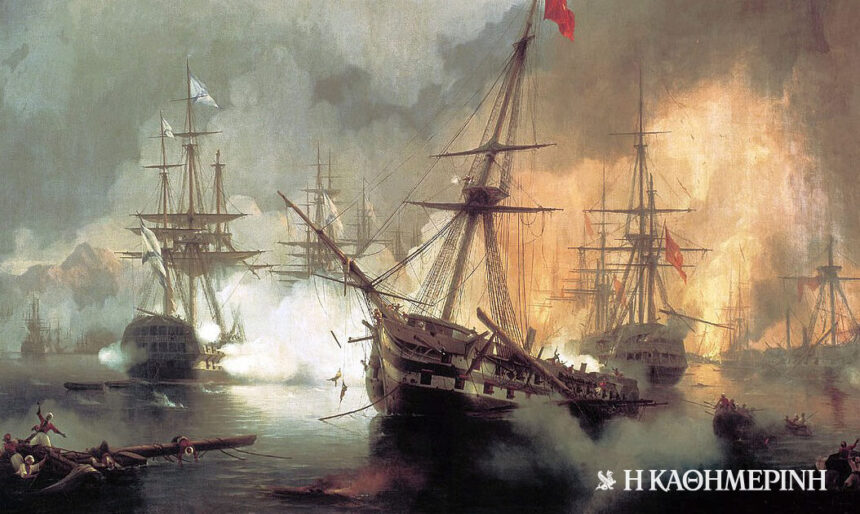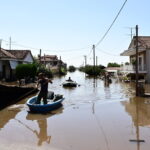Six years after the start of the Greek Revolution, an important event would take place which had a key effect on its course: the naval battle of Navarino.
Initially the Great Powers had refused to provide aid to the rebel Greeks, citing the “principle of ethnic groups”. A series of data, however, changed the balance. These included both the successes of the fighting Greeks and the fact that in 1825 the Sublime Gate would seek the aid of Egypt – a development which resulted in the situation for the rebelling Greeks rapidly deteriorating.
In addition, Philhellenism had a significant impact, which had acquired characteristics of a movement in the largest European cities already from the beginning of the Greek Revolution. In a period where, thanks to the Enlightenment, classicism and the rediscovery of ancient Greek philosophy dominated, the struggle of the Greeks was also seen by a large part of European public opinion as a struggle of the cross against the crescent moon – which led it to side with the Greeks . The pressure put on the rulers was great.
Although the leaders of the countries initially appeared cautious, the political scene would change thanks to their mutual rivalries as well as their conflicting interests in the region. Eventually, France, Britain, and Russia would ally in seeking an armistice. More specifically, with the Treaty of London, in June 1827, the Great Powers asked the Ottoman government to grant autonomy to the Greeks and sent naval squadrons to the Eastern Mediterranean to enforce the policy they chose. The Greek side immediately accepted the agreement, but Ibrahim Pasha of Egypt, who already had almost the entire Peloponnese under his control, requested a deadline until he received relevant instructions from Egypt and the Sublime Gate, promising that his fleet in in the interim he would remain in Pylos. It is noteworthy, however, that the Ottomans considered these movements of the Great Powers and their presence in the region to be interference in their internal affairs.
The Egyptian and Turkish fleet in Navarino Bay consisted of 52 ships. For his part, the European fleet found in the area consisted of a total of 27 ships led by Vice-Admiral Codrington, Rear-Admiral Derigny and Rear-Admiral Hayden. Based on British Prime Minister George Canning’s interpretation of the Treaty of London that if their wishes were not heeded they could attack, they decided to enter the bay to force the Egyptian and Ottoman fleets back to their bases in Alexandria and Constantinople, and to stop the advance of their forces in the Peloponnese, as for the Europeans its continuation would mean a violation of the agreements.
The conflict began at noon on the 20thher October, with a general skirmish between the fleets, and would continue into the evening. Its end was the destruction of the Egyptian and Ottoman fleet. In total, more than 3,000 Turks and Egyptians lost their lives, while losses of the European allies were 177 dead and 470 wounded.
The naval battle of Navarino, characterized as an “unfortunate event” by King George IV of the United Kingdom and was one of the last naval battles of such extent with wooden ships. But it was also an important stage in the struggle for the freedom and independence of the Greeks. The latter would be officially ratified three years later, in 1830, with the London Protocol; the first official, international diplomatic act that recognized Greece as a sovereign and independent state.
Column Editor: Myrto Katsigera, Vassilis Minakakis, Antigone-Despina Poimenidou, Athanasios Syroplakis








